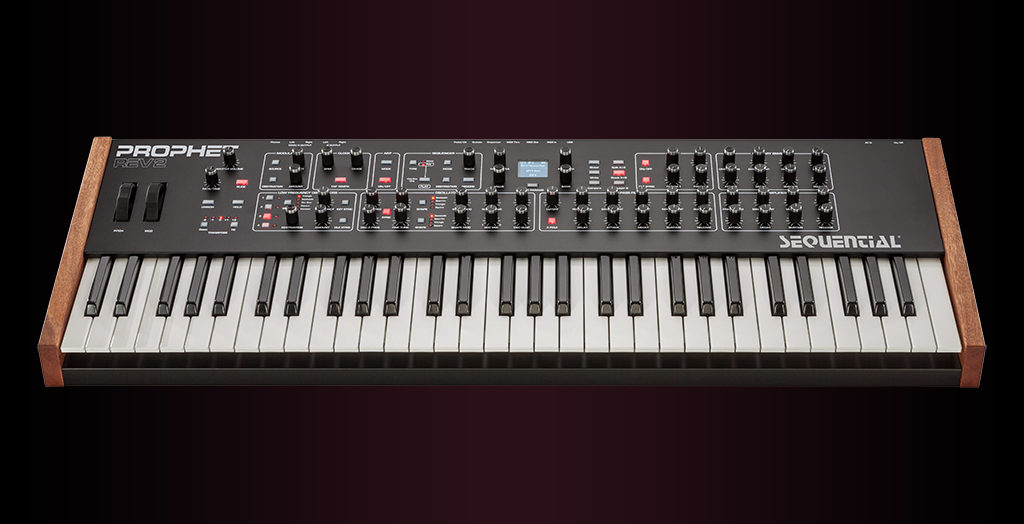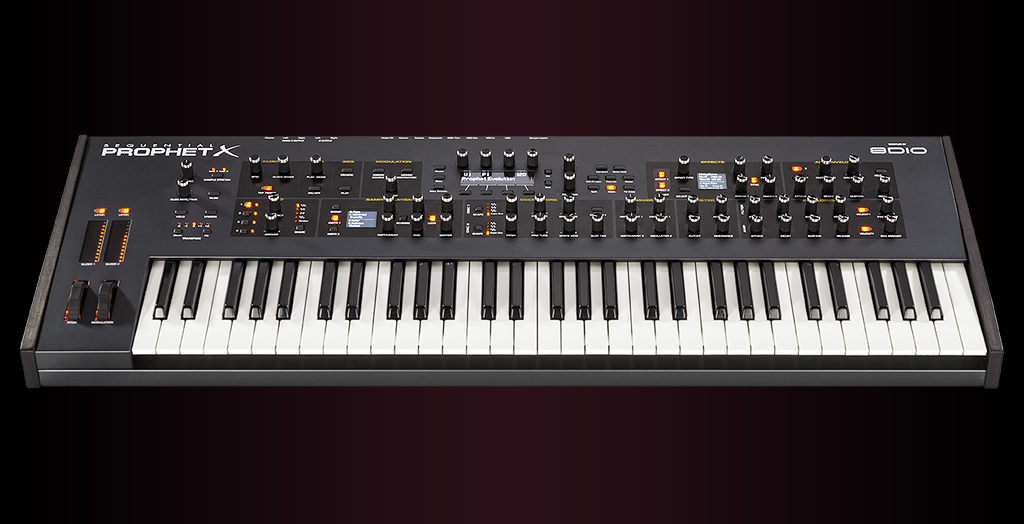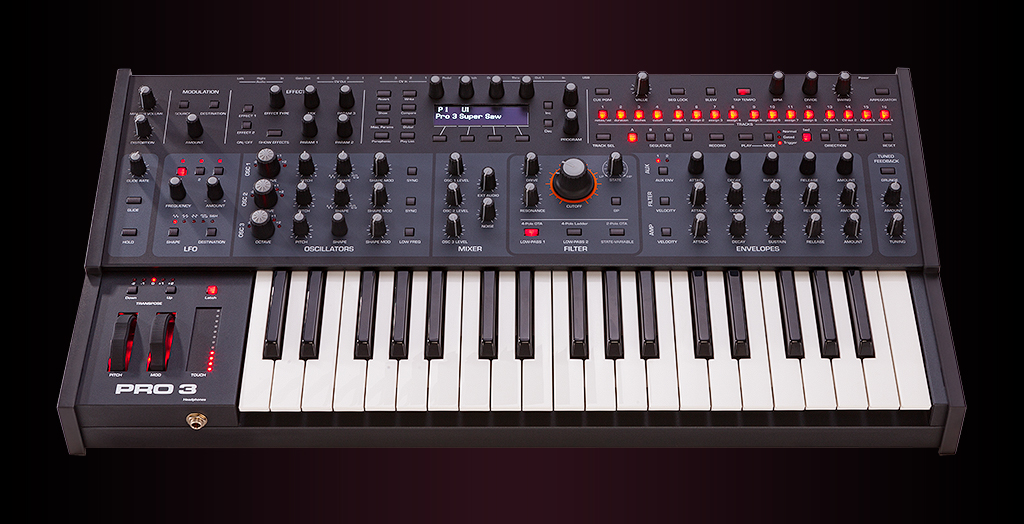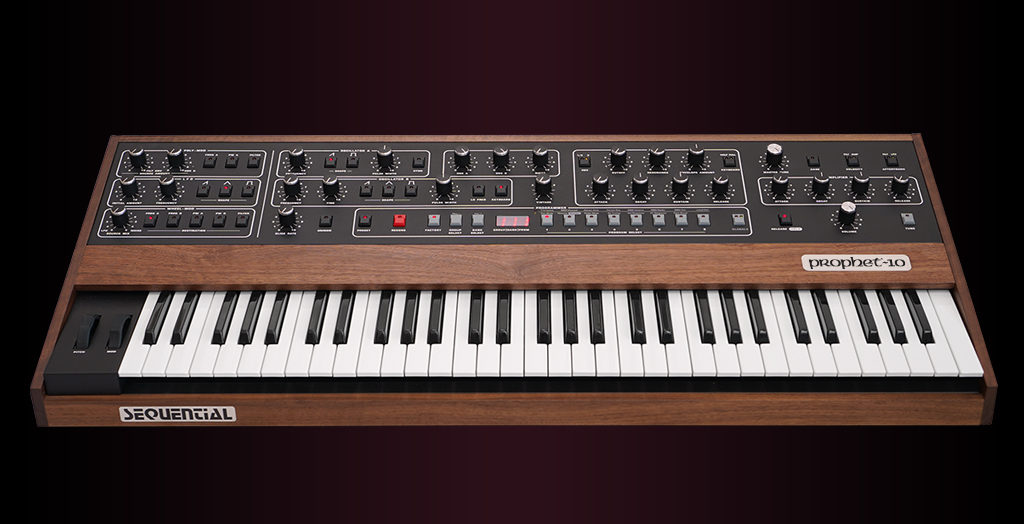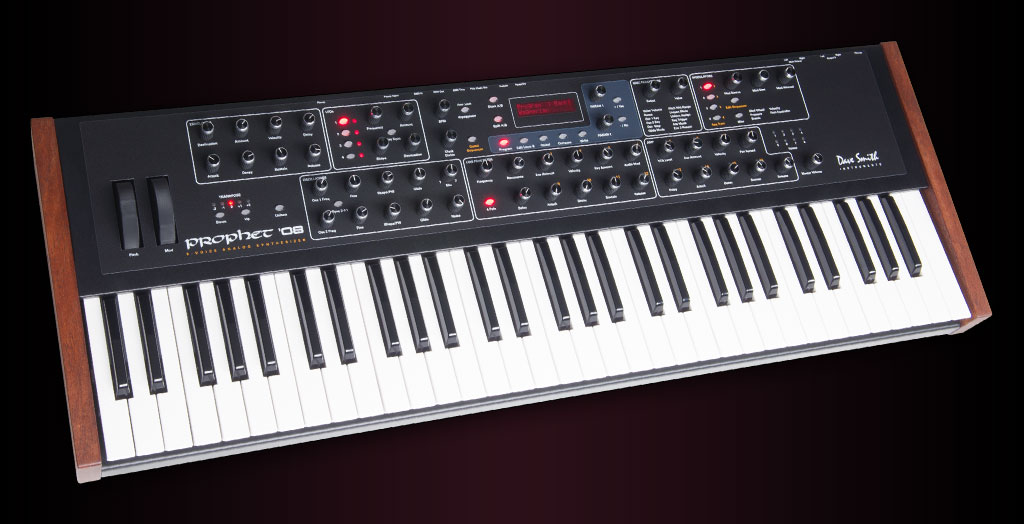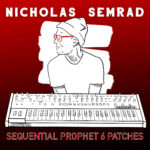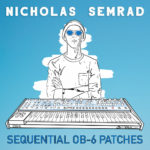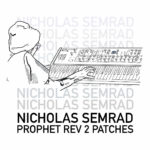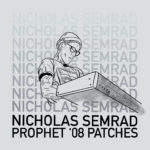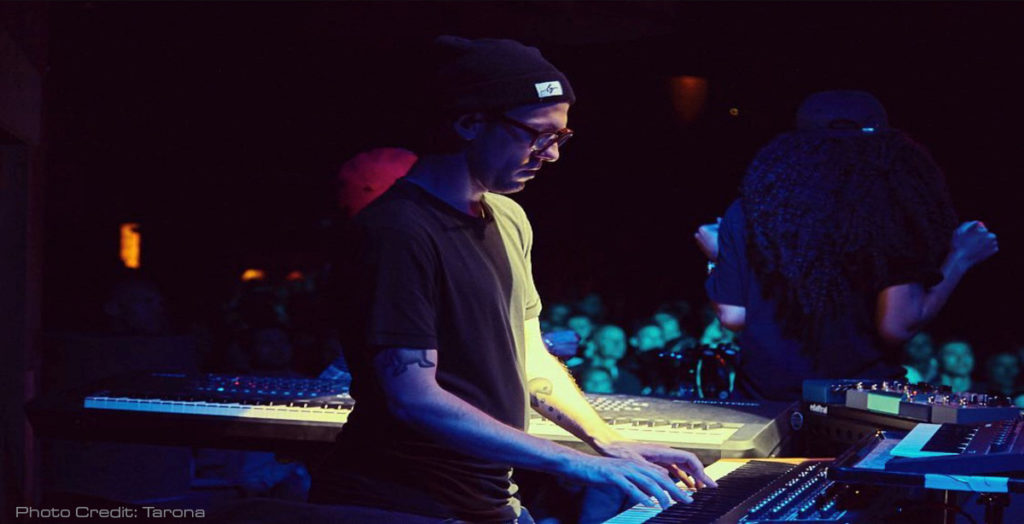
Featured Artist Nicholas Semrad
Gear Used
Nicholas Semrad is a keyboardist and programmer based in both Los Angeles and New York City, currently touring with Cory Henry and the Funk Apostles, Mark Guiliana’s Beat Music, Donny McCaslin, Knower, Jennah Bell, and The Lesson NYC.
Born in the small town of Fremont, Nebraska, he studied Suzuki classical piano for 14 years before studying private jazz and rhythm study with ex-Wynton Marsalis/Norah Jones drummer Dana Murray.
After touring the midwest blues scene with blues legend Magic Slim (and the Tear Drops), Nicholas re-located to New York City where he started playing with some of the finest musicians around. Touring stints and gigs in the past have been with Miss Lauryn Hill, Talib Kweli, Bilal, Liv Warfield, Meg Mac, Gabriel Garzon-Montano, Terrace Martin, and Bootsy Collins.
We chatted with Nicholas on how he uses Sequential instruments in his music:
How did you first get started with music? Was it nature or nurture for you? Were you a self-starter or was it something that you grew into?
Many of my family members were musicians and my dad and a few grandparents did it professionally, so I got into music at a very young age. I started taking Suzuki classical lessons at 3, and was writing and playing with my dad’s cover bands when I was around 7-8. By 16, I was traveling a bit with some regional blues/R&B bands.
It seems that some musicians have a sort of “eureka” moment in their early years where the light bulb comes on and they realize “This is what I need to be doing.” Do you recall anything like that for you?
I may have a somewhat complicated answer to this question. Music was all I really ever knew, so I never really looked, or was able to easily look, at “whether I needed to be doing it.” I think the question that hit me the hardest as I was maturing musically was “what parts of this musical life do I actually love,” and I feel like I’m constantly needing to re-ask myself this question and re-adjusting to the answer. When I was younger, it probably had more to do with the attention music brought me and the possibility of it being a career. As I hit my college years and shortly after, the reasons became more competitive and based in the acquisition of skills, achievements, etc. Now the answer is almost entirely about self-expression, the people that I’m lucky enough to work with, and ideas more rooted in mental health and a search for meaning.
Tell us about your first synth!
Other than a Novation Bass Station that I gave up on very quickly, my first deep relationship with a synth was the Prophet ’08. I had seen a keyboard player in NY by the name of BIGYUKI play it and was absolutely floored by some of the sounds he was getting. I bought one and arrogantly thought I could conquer it right away. I was humbled quickly when I turned it on and could barely get one sound out of it (cutoff knob was all the way down). I proceeded to lock myself in my room for a month and learn as much as I could, and then would limit myself to only playing that synth on stage and making myself as uncomfortable as possible so that I could learn it.
Do you usually design your own sounds? If so, how do you approach that? Do you have a process?
Unless I’m trying to recreate something specifically for an artist, I always build my own sounds. I’m not sure that I have a consistent process other than starting with rough ideas of what I want to accomplish. I have iPhone notes full of synth ideas like “lead sound that slightly emulates the THX movie intro” and “SBTRKT blip, but way more pissed off” that help me to at least know where to start.
What kind of things get you excited about an instrument?
I think that this depends on the gig or experience that I’m trying to have. If I’m touring, I need something dependable, adaptable, and versatile. If I’m recording, I usually want as many design options as possible so that I can fine tune a sonic idea. Overall, I need something that allows me to buck the trends a bit. I’m very comfortable playing “only” a piano or “only” a one-oscillator synth, but I’d like to have at least one modulation option so that I can get a bit experimental.
When you get a musical idea how do you go about developing it? Can you give us an example?
I think the only answer to this question is to say that “I just experiment.” I don’t think that there is any one strategy or any one workflow that always works. I just experiment and hope for the best.
Do you have certain musical ideals? Certain things that you strive for?
I think there’s two things at the top of my current hierarchy. First, I try to aim for honesty in everything musical I do. If it’s truly music that I’m trying to create, it won’t feel like music unless it’s coming deep from the heart. However, I think many artists, especially due to the COVID situation, are having to stay afloat with more corporate work and business-y things, so my second thing is that I’ve also tried to mentally draw a line between those things and “music.” Yes, a gear tutorial or a “sponsored media post” is technically musical if there are instruments/melody/harmony/whatever involved, but I don’t have to have the mental energy to always have all of those projects come from a deep creative and emotional place; therefore, I usually try to create a line between what I refer to as “work” and what I refer to as “music” so that I can invest my energy accordingly. Things become way less overwhelming this way.
Generally speaking, are you happier in the studio or on stage?
I’m much more into the stage than I am the studio, even though both places can be absolutely magical under the right circumstances. I think the energy of a crowd usually affects me more than the energy of sitting in front of a monitor or in front of an engineer and some speakers.
What are you listening to these days?
I’m saddened to admit that I found out about the electronic artist SOPHIE due to the fact that she passed. I haven’t been this affected this intensely by a sonic spectrum since 6-7 years ago when I discovered Jai Paul, and I hate that I didn’t know about her while she was alive. Nonetheless, I’m taking a deep dive into her music currently, and I’m also continuously oscillating between old faves Radiohead/Death Cab/Talking Heads and newer faves Bibio/Jose Gonzalez/Tycho/Billie Eilish.
What kinds things inspire you, musically or otherwise. Has this changed much over time?
I think that my time in NY caused me to be inspired by innovation, especially innovation that doesn’t sacrifice musicality. When I hear an artist (or a company) that has changed the game somehow, whether sonically, lyrically, rhythmically, work-flow-wise or anything else, I’m instantaneously sucked in. It is a far more dangerous career move to buck a trend, which usually infers that someone is making a very personal and heartfelt decision to do so. I respect the hell out of this, and will always give it my ear and usually my heart.
Do you have a musical bucket list?
Other than wanting to work with either Thom Yorke or TV on the Radio and maybe being a college professor, I’d be content with just finding even deeper versions of contentment, meaning, and joy.
You’ve toured with Mark Guiliana’s Beat Music, a band that has toured and recorded as a quartet with 2 keyboard players. You’re doing it as a trio. Can you tell us a little bit about how you’re covering the keyboard parts and what instruments you’re using?
Yeah, I’m playing the Rev 2 and the Pro 3 with Beat Music. Now that we’ve started doing some dates as a trio rather than the original quartet, I’m forced to cover a lot of moving parts. The Pro 3 is such a beastly lead instrument that I usually cover all of the melodies and the solo-y parts with that board. The Rev 2 is one of the most versatile boards that I’ve ever played, and it allows me to not only have some splits occurring but to alter the sounds within the splits via the mod wheel and an expression pedal. One program usually ends up covering a pad, some rhythm parts, and some textural modified things all at the same time. It’s a lot of responsibility, but I like keeping the amount of boards I play on one gig at a minimum, and those two allow me to cover everything I need to cover!
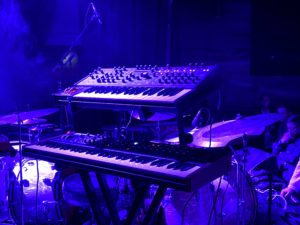
Nicholas Semrad’s Pro 3 and Rev2 on stage with Mark Guiliana’s Beat Music
What made you choose Sequential?
It allows me to have a unique voice. No two players sound the same on any of these boards, especially if they’re building their own patches. There’s not many other companies that you can say that about.
How are you using them?
I use these things for recording, touring, writing, patch-building, teaching, and I sometimes even cuddle with them at night If I’m feeling lonely.
What’s one of your favorite things about them?
There’s a product for every style of player. If you need dope presets and easy sounds, there’s a board for that. If you want to have 8000 modulations, there’s a board for that. If you need a small key-bass that’s powerful, there’s a board for that. If you need something to make you lunch, I think the Rev2 can do that now, too.
Any interesting tricks or techniques you’d like to share?
Check out the tutorial videos I’ve been doing for Sequential! I think I have four of them now, and there will be many more to come.
Custom Sequential patch sets by Nicholas Semrad:
Sequential Synth Tips with Nicholas Semrad:
LINKS

